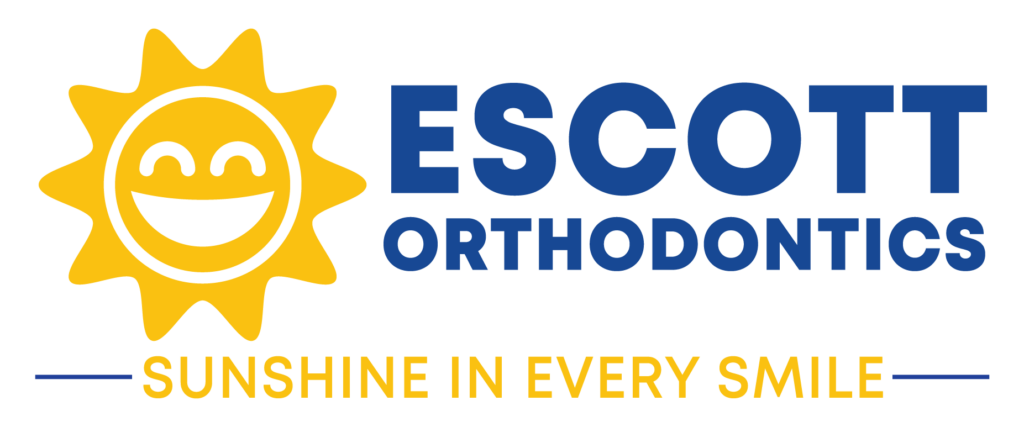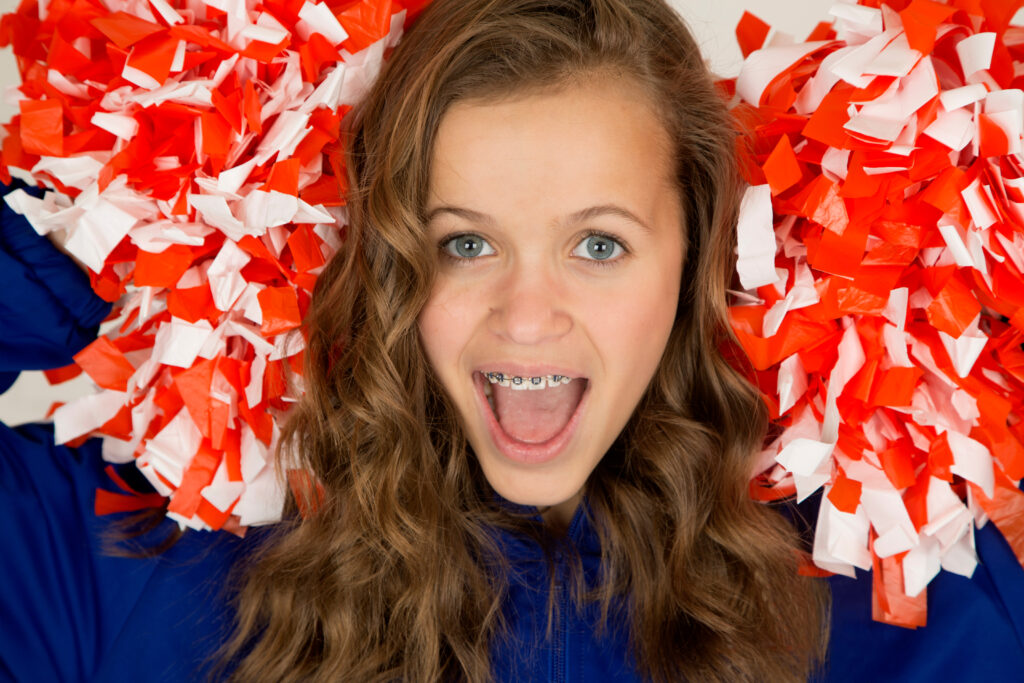Playing sports is a great way to stay active and healthy, but it can also pose a risk to your teeth and braces. If you or your child has braces, it’s important to take extra precautions to protect your teeth and braces during physical activity. Today we share what you need to know about orthodontics and sports, and provide more tips and details on how to protect your teeth during physical activity.
- Wear a mouthguard: A mouthguard is a protective device that covers your teeth and gums to prevent injury during physical activity. When you have braces, it’s even more important to wear a mouthguard to prevent damage to your braces or injury to your mouth. We recommend a mouthguard that’s designed specifically for your mouth and braces; this type of mouthguard will be different from other common types of mouthguards, like the popular “boil-and-bite” mouthguards which will not work well with braces and teeth that are being moved. At Escott Orthodontics, we provide mouthguards to our patients who are in active treatment; its simply part of how we take excellent care of our patients.
- Choose the right sport: Some sports are more high-contact than others, and therefore pose a greater risk of injury to the mouth. If you or your child has braces, it may be a good idea to choose a sport that’s lower-contact, such as swimming or track and field. If playing a high-contact sport, such as football or hockey, is important to you or your child, taking extra precautions is crucial.
- Take extra precautions: In addition to wearing a mouthguard, it’s important to take extra precautions to protect your braces and mouth during physical activity. This may include wearing a helmet, faceguard, or other protective gear, as appropriate for the sport you’re playing. We recommend discussing your specific needs with your orthodontist and coach to determine the best course of action.
- Notify your coach or team: If you or your child has braces, it’s important to notify the coach or team of this fact. They may be able to provide additional accommodations or advice to help protect the mouth and braces during physical activity. For example, they may suggest adjusting the game strategy or position played to minimize contact to the mouth.
- Seek immediate care if injured: If you or your child experiences an injury to the mouth while playing sports, seek immediate care from a dental professional. They can assess the extent of the damage and provide appropriate treatment to prevent further injury or damage to the braces.
- Practice good oral hygiene: Maintaining good oral hygiene is important for everyone, but especially for those with braces so that the teeth and gums stay strong and healthy. While at sports, drink plenty of water and avoid sugary or acidic sports drinks. Make sure to brush and floss regularly, and carry a travel toothbrush and toothpaste with you if needed.
At our Orlando orthodontic practice, we’re committed to helping our patients achieve a healthy, straight smile while also protecting their oral health during physical activity. By following these tips and working closely with our team, you can enjoy the benefits of sports while also keeping your teeth and braces safe. Contact us today to schedule a consultation and learn more about orthodontics and sports safety.



